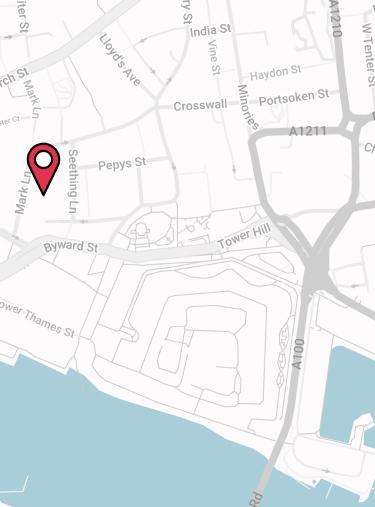Top Five Personal Finance Problems Facing Working Brits


With some very interesting findings from our latest annual Wealth & Protection Survey, we have highlighted below the five key areas where the average working Briton continues to struggle when it comes to personal finance.
Tom Conner
Director at Drewberry
1. Most Britons aren’t Saving Nearly Enough for Retirement
Almost 1 in 5 (18.2%) of Britons have no pension of any kind while out of those that do, just over half (50.2%) have no idea what their pension is worth.
Among those who know how much their pension is worth, 44% reported a pot worth less than £10,000 while 80% had less than £100,000. Only 5% reported a pension pot worth over £400,000.
Almost 1 in 5 (19.3%) of working Britons don’t know how much they contribute to their pension. Among those who do know, 13% admit to contributing nothing at all to a pension. Meanwhile, 79% are still contributing less than 10% of their take-home pay to their pension.
“This is another very worrying report for working Britain,” comments Tom Conner, Director of Drewberry, “pensions should be a fundamental part of personal finance, but a great many Britons are clearly sacrificing their pension contributions to keep their day-to-day lives afloat.
It seems that most of us are either too financially constrained or just don’t understand the importance of funding a pension.
“Not surprisingly, we found that 20% of the UK workforce has no idea when they’ll be able to afford to retire while 10% don’t think they’ll ever afford it. To us,” says Conner, “these findings underline the prescience of Automatic Pension Enrolment.
We clearly need a system that makes workers’ pensions the ‘default setting’ if we’re ever to improve the average level of retirement provision in this country,” he says.
How Much is Your Current Pension Worth?
Use our Pension Drawdown Calculator to see for yourself how long your pension might last in its current state. It will illustrate just how long your pension pot will last based on the level of income you select and the size of your pension pot.
2. Britons are Three Times More Likely to Insure Pets Than Themselves
Almost a quarter (24%) of working Britons have some form of pet insurance compared to just 8% who have Private Health Insurance (PMI). Only 11% of working Britons currently have Critical Illness Cover (CIC) while just 6% have Income Protection cover.
As Conner observes, “The scarcity of discretionary income is also having an impact on how Britons are choosing to insure themselves. Only 37% of our survey respondents carried Life Insurance of any kind, even though 62% have children and 43% have a mortgage outstanding,” he says.
“What’s most worrying,” he says, “is that just 6% of working Britons have taken measures to protect their personal finances should they be unable to work due to illness or injury. This is just over half the number who have taken out Critical Illness Cover, often as a ‘rider’ on their mortgage.
“Seen from above this looks like another instance where more education on personal finance and protection is required.
“Income Protection covers everything included in a critical illness policy as well as a host of other, far more frequent, health problems. Most personal finance advisers would agree that Income Protection is far more useful than Critical Illness Cover,” says Conner, “but it seems that a great many Britons never got the chance to compare the two.”
Which of the Following Financial Products Do You Currently Hold?
3. Too Many Working Britons Simply Haven’t Engaged with Pensions, Personal Finance and Tax Planning
Sadly, 2 out of 3 Britons (66%) still don’t know that pension contributions receive tax relief while some 44% wrongly believe that ISAs pay tax relief.
Over 60% of working Britons have no idea at all about what assets will attract Inheritance Tax (IHT) and indeed, 92% wrongly believed that their pension was liable to Inheritance Tax.
Meanwhile, 87% of working Britons admit to having done nothing to assess their current IHT liability.
“These findings were especially troubling,” says Conner, “due to the huge amounts of time and money that the government, the investment industry and personal finance advisers in general have invested trying to communicate the key points around pensions and ISAs. This will be a telling failure,” he says, “if the current levels of saving and retirement funds do not improve over time.”
Which of These Assets Do You Think You Pay Inheritance Tax On?
4. Brits are Unwilling to Take Investment Risk
42% of Britons claim to have cash ISAs, more than three times the number who have invested in stock and shares ISAs (13%), which carry some form of investment risk. Meanwhile, 40% of working Britons have no risk-based savings whatsoever. Of those who do, 71% claim to have less than £10,000 invested.
“Despite today’s ultra-low interest rate environment,” says Conner, “working Britons still have a clear preference for ‘risk-free’ investments, even though cash held on deposit will naturally decline in value due to the UK’s negative ‘real rates’.
“This underlines that too many Britons still prefer to opt for something familiar that they understand,” says Conner. “It seems clear that it’s an education gap as much as anything else that’s preventing the average Briton from making more use of appropriate risk-based investments.”
Because little knowledge about investment strategies is widely spread, many Britons would prefer to keep the money that they have safe rather than pursue the opportunity to earn more. However, considering the lack of involvement that many Britons have with their pension up until retirement, turning to Income Drawdown when they are drawing an income could be their saving grace.
5. Too Few Working Britons Are Seeking Professional Finance Advice
Almost 2 in 3 (65%) of working Britons have never received advice about their personal finances. Encouragingly, 63% of those who had received financial advice in the past thought they were better off as a result of the experience.
“On first reading, this looks like a great reflection on the advice industry,” he says, “but with 65% of working Britons – somewhere in the region of 20 million people – never having received Financial Advice it’s clear that we still have a great deal of work to do in order to close the ‘advice gap’.
“With almost two-thirds of us never having received financial advice,” he says, “it’s little wonder that so many Britons are still so poorly equipped for retirement.”
Have You Received Financial Advice?

Overall there are some really interesting findings from our recent research and certainly some food for thought. You can click the following link to see the key findings and full data from our 2017 Annual Wealth & Protection Survey.
Neil Adams
Head of Financial Planning
Find > Organise > Simplify

Contact Us
125-135 Preston Road
Brighton
BN1 6AF
Cookies
Drewberry™ uses cookies to offer you the best experience online. By continuing to use our website you agree to the use of cookies including for ad personalization.
If you would like to know more about cookies and how to manage them please view our privacy & cookie policy.



